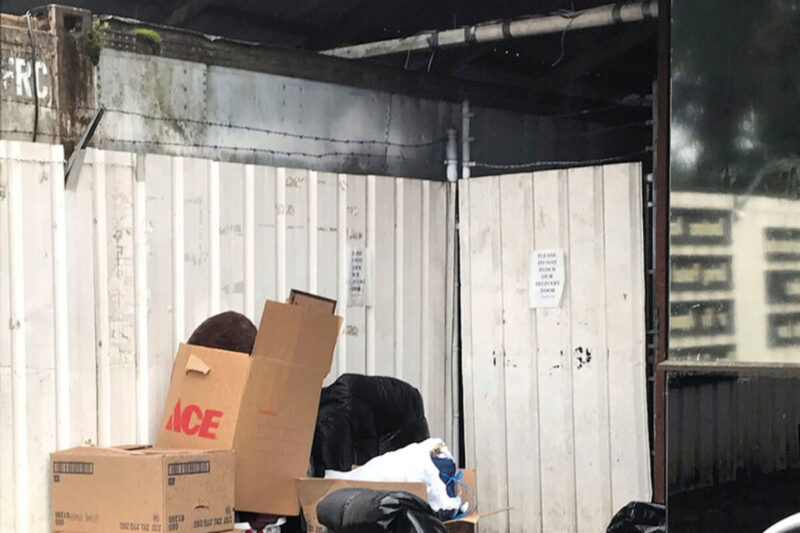Benny Westcott
The Sweet Home Gleaners, Inc. relies on donations to run its thrift store. But its staff is unhappy with the near-daily dumping of unusable items in its parking lot after business hours, volunteer Theresa Howard said.
“We have to put it in the Dumpster or haul it to the dump ourselves, which is expensive,” she said.
This isn’t a new problem for the Main Street nonprofit. According to Howard, it’s been happening throughout the four years of her involvement. And the rate of this activity over that period has “remained about the same.”
Some of these items include old beds, furniture, stoves, a fryer, sinks, toilets and a refrigerator, pretty much all of which are falling apart. Someone once literally dumped a bag of garbage. Then there was that black recliner left in assorted pieces.
“I don’t know if people think we repair stuff and then send it off, but I’m not a carpenter or furniture maker,” Howard said. “I can’t do that. If it’s not in good usable condition, we can’t use it.”
Howard couldn’t recall anyone being fined on a theft-of-services charge during her time with the Gleaners, but in the summer of 2020 a camera at the location captured footage of people in a vehicle dumping in daylight after business hours. They were made to return and retrieve their items, but Howard said that cameras have been less effective at night.
And now the business has no cameras at all, as the ones previously in use were owned by Lisa Pye, who removed them after resigning as the Gleaners’ coordinator last September.
Without them, Howard said, police have a tougher time.
“I don’t think they could [catch anyone] unless they park here,” she said.
Sweet Home Police Department officers patrol the area, and the Gleaners is part of the Police Property Watch program, which allows people responsible for commercial properties and businesses in the city to authorize police to act on their behalf. Program membership is free, and it gives the police authority to ask trespassers to leave properties.
“Sweet Home cops are always super nice when we do call them,” Howard said, adding that Gleaners volunteers work to identify people themselves by looking for serial numbers, scraps of paper or addresses among discarded items.
Howard said that when Pye was coordinator (the organization currently does not have one), the Gleaners “pretty much took donations from everybody for any reason. Being in a small town, [Pye] was afraid that if we didn’t take what people brought, they wouldn’t bring anything.”
Although the charity has since tightened restrictions – “because we don’t want garbage,” Howard said – it hasn’t stopped people from dumping at night.
The Gleaners work to feed people, offering canned goods, meat, produce, dairy, bread and pastries, among other things. The charity, which boasts a 56-house membership, receives food from Safeway, Linn Benton Food Share and private donors. Members receive free food from the store every week, as long as they fulfill a contract to work in the Gleaners’ thrift store eight hours a month. The thrift store depends on selling household items and clothing, but not the kinds of “donations” being dumped after hours.
Howard has a message for such people.
“They should think twice before putting a hardship on us that takes away from the people we help,” she said. “They should just think for a minute about how they are causing a hardship on people that can’t afford to have a hardship.”





